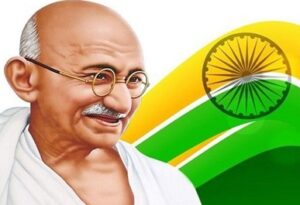Introduction:
It’s a somber occasion to honor one of history’s most recognizable people as the globe marks January 30. That person is Mahatma Gandhi. Gandhi, who is regarded as the “Father of the Nation” in India, inspired generations of people all over the world with his peaceful resistance, truth-telling, and nonviolence. On this unique day, let’s explore the life, legacy, and ongoing significance of this remarkable man
Understanding Mahatma Gandhi’s Life:
Born in Porbandar, India, on October 2, 1869, Mohandas Karamchand Gandhi set off on a voyage that would change the course of history. His pursuit of justice and the truth characterized his early years, inspiring him to study law in London and thereafter work as a civil rights activist in South Africa. Gandhi established his idea of Satyagraha, or peaceful resistance, as a powerful tool for social and political transformation, during his stay in South Africa.
Gandhi’s Return to India:
After arriving back in India in 1915, Gandhi rose to prominence within the Indian independence movement quite quickly. His direction of a number of campaigns, such as the Salt March and the Non-Cooperation Movement, inspired millions of people nationwide to rebel against British colonial control. Gandhi embodied the power of nonviolent, truth-based collective action by means of boycotts, fasts, and nonviolent protests.
Legacy of Mahatma Gandhi:
Gandhi’s influence is felt long after India gained its independence. His lessons on self-reliance, equality, and tolerance are universally relevant and serve as a beacon of hope for social justice movements around the globe. Leaders all around the world, from Nelson Mandela in South Africa to Martin Luther King Jr. in the United States, have found inspiration in Gandhi’s ideas for their own struggles for equality and freedom.
Relevance Today:
Mahatma Gandhi’s message of peace and nonviolence is more important than ever in the turbulent world we live in today. His teachings serve as a reminder of the transformative potential of love, compassion, and understanding in the face of growing division, hatred, and violence. Whether addressing political oppression, environmental deterioration, or racial injustice, Gandhi’s ideas provide an enduring framework for creating a more equitable and peaceful society.
Conclusion:
Let’s pay tribute to Mahatma Gandhi on this January 30th by reiterating our dedication to his values of compassion, honesty, and nonviolence. Gandhi’s long legacy is a source of hope in a world full of challenges. It reminds us that peace and progress start with the individual and eventually bring us all together in a common journey towards a better future..
